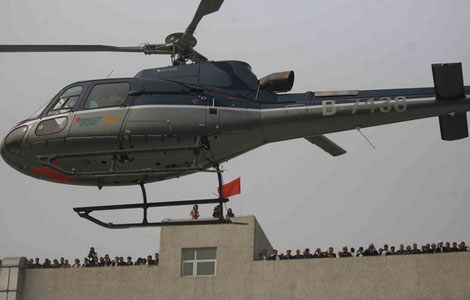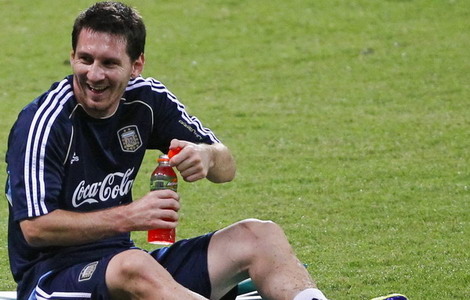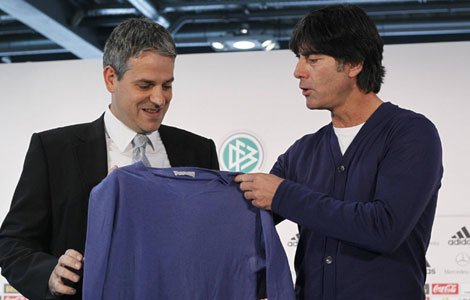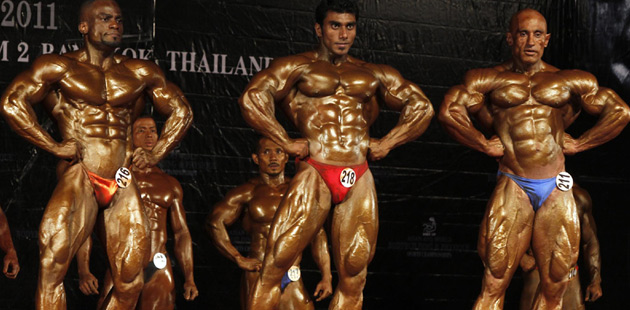The Road to success is paved with money
Updated: 2011-10-11 08:00
(China Daily)
|
|||||||||||
|
Cyclists compete while riding past the National Stadium, better known as the Bird's Nest, during the fifth and final stage of the inaugural Tour of Beijing cycling race on Sunday. The race is the first of its kind in Asia, as the International Cycling Union (UCI) looks to expand to new continents. [Photo/Agencies] |
Chinese road cycling unlikely to advance much further without government support
China's chances of producing a road cycling star of the future would increase significantly if the sport was given much needed backing from sports leaders, according to a top International Cycling Union (UCI) official.
Frederic Magne, a former world keirin champion who runs the UCI's World Cycling Centre in Switzerland, was upbeat after seeing several home-based riders jostle with the peloton's top stars during the inaugural Tour of Beijing which ended on Sunday.
Although he witnessed flashes of promise in the five-stage event, he says China's cycling hopefuls would really flourish if the country's sports leaders woke up to their potential and gave them the kind of backing afforded to other Olympic disciplines.
"It's a question of priority," Magne said at the end of the five-day stage race, won by Germany's world time trial champion Tony Martin.
"Road cycling has not been one of their priorities. China's sports leaders have known there would be no chance of Olympic silverware in the time trial or the road race.
"So instead, they've focused on the sports in which they are likely to win Olympic medals."
The Tour of Beijing, set to be held for another three years at least, marks another significant step for the UCI in its quest to go global with a sport whose traditional heartland has been Europe.
It joins the Tour Down Under in Australia and the Grand Prix of Quebec/Montreal as the latest race outside Europe to join cycling's elite calendar of the WorldTour, which guarantees the presence of the world's top teams.
As well as providing a sporting spectacle, it is hoped the event will help promote the idea of cycling as a leisure sporting endeavour, and not simply as a means of travel, which it had been for many decades in China before the masses took to four wheels.
Magne added: "In China cycling is not yet popular as a sport. The Chinese have done a lot of cycling, but mainly for getting from A to B.
"Compared to other sports which bring in a lot of medals, bike racing lags far behind. At the Beijing Olympics, out of a total of 100 medals, China won only one in cycling."
China's sole cycling medal at the 2008 Games came thanks to track cyclist Guo Shuang, who won bronze in the women's sprint.
The nation's presence in the European peloton has been fairly limited. Former RadioShack rider Li Fuyu last year fell foul of the anti-doping authorities when he tested positive for the banned substance clenbuterol.
Until China's sports leaders get behind their budding cyclists, Magne believes they won't get much further.
But he believes that with the right approach, the most populous state in the world can produce a cycling star or team in the future.
"If they make a conscious effort, the rest will follow," he said.
"China has enormous potential in terms of resources, uncovering (of athletes) and the sheer numbers (of athletes).
"I don't see why cyclists would find it any harder to adapt (to the professional ranks) than basketball players who have played in the NBA, or baseball players.
"The Chinese are hard-working. They don't like to be dictated to, but they're very receptive to advice.
"They need to be made to feel confident. There's a lot of work to be done, and it's a big challenge, but if they have the will I don't see how they cannot be successful."
Agence France-Presse
Hot Topics
Libya conflict, Gaddafi, Oil spill, Palace Museum scandal, Inflation, Japan's new PM, Trapped miners, Mooncake tax, Weekly photos, Hurricane Irene
Editor's Picks

|

|

|

|

|

|








